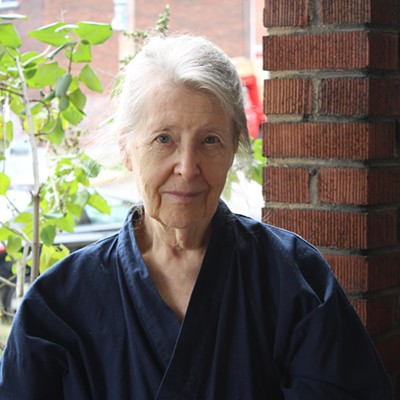Sometime in the near future, Earth is suffering through a solar winter. The sun is dying, and our planet is a gloomy, cold place. Without adequate sunlight, mankind and all his biological kin will perish. Thus a huge bomb, designed to re-ignite the sun, is loaded onto the spaceship Icarus. Unfortunately, the plan fails when the vessel disappears deep in space.
Then, a few years later, the last of Earth’s resources are fashioned into a new bomb, and Icarus II is 50 million miles from Earth headed straight for the sun. On board: eight crew members, just enough oxygen to complete the mission, and the fate of humanity. After a portentous voiceover that establishes this backstory, we join the Icarus II just as it cruises past the last communication point — or I daresay, the true start of any worrisome sci-fi drama.
That things go wrong in the solar-bomb mission won’t come as a surprise to viewers. (Nor should it to the crew: Who would board a craft named Icarus for a trip to the sun?) But Sunshine, penned by Alex Garland and directed by Danny Boyle (28 Days Later), isn’t a bombastic space-chase and alien-gore actioner; it’s a relatively compact drama, equal parts psychological brooder and morality play, with a splash of the spiritual added.
While eight crew members might seem woefully inadequate for such a huge ship and critical mission, it’s just right for a tense little thriller. All you really need is a captain, a hothead mechanic, a doctor, a couple of scientists and a dreamy, shaggy-haired physicist with impossibly blue eyes, portrayed here by Cillian Murphy. Murphy doesn’t have much to do but look pensive or worried, but he’s an engaging presence.
Near Mercury, the Icarus II picks up a distress signal from Icarus I, prompting the crew to alter its carefully laid plans. Uh oh. After several decades of space dramas, viewers know to expect at least one of the three most dangerous things in outer space: aliens, hyper-intelligent viruses or fellow crew members losing their minds.
Though it plays out fairly quietly, Sunshine keeps us hooked with its gorgeous look. Boyle frequently frames his characters with various “spacey” video images — transparent panels of information, playback from onboard cameras and light bouncing off reflective surfaces. These images, some of which are reminiscent of the “druggy” video backgrounds that used to help rock bands look cool, help relieve the aesthetic dullness of the familiar spaceship sets. (On other hand, there were so many establishing shots of the craft moving turgidly through space that I felt like had tuned in to some cheap TV space-opera.)
Another of the film’s effective visuals is a recurring shot from inside the protective spacesuit the astronauts must wear in times of peril. The viewer is crammed in the helmet, virtually pressed up against the sweaty cheek and panicked eyes of the crew member, and frustrated, like him, by the inadequate view through the extraordinarily narrow eye slot.
From the outset, Sunshine recalls the low-key moodiness of the more cerebral space dramas of the 1970s, such as Silent Running and Solaris, as well as their antecedent 2001. This is a stripped-down story, free of silly subplots and romances. It has some tense outer-space action scenes (a spacewalk to repair busted solar panels; a catastrophic event). But Sunshine is less concerned with brawn and bravado than with the real and moral consequences of decisions.
In spite of a weak, tidy ending, Sunshine is a cautionary tale about applying tiny, imperfect human fixes to the vastness of Creation. Is the mission “divine” because of its larger purpose — saving mankind — or because these individuals ascended to playing god? And would the question even matter if they were saving the moon? Sunlight, in a precise amount, is necessary to life. Yet as a power source, it inevitably holds temptation. Early in the film, one of the crew argues that overdosing on sunshine can be transcendent, and addictive.
When you’re alone in space, no one can hear you scream — except perhaps God. But what if you’ve become God? When man is lost beyond known dimensions, science fiction often entertains religious noodling, and Sunshine’s last reel slides head first into the metaphysical. I stayed on board because the film still looked great, but the shift in tone was jarring and its embrace was dependent on some leaps in logic — all the more frustrating since the preceding narrative relied heavily on the rigid rules of physics.
So if the last few minutes kinda lost me, it’s understandable: It’s dangerous so close to the sun — for astronauts and filmmakers alike. Outcomes are tricky, but the journey is certainly worthwhile.














